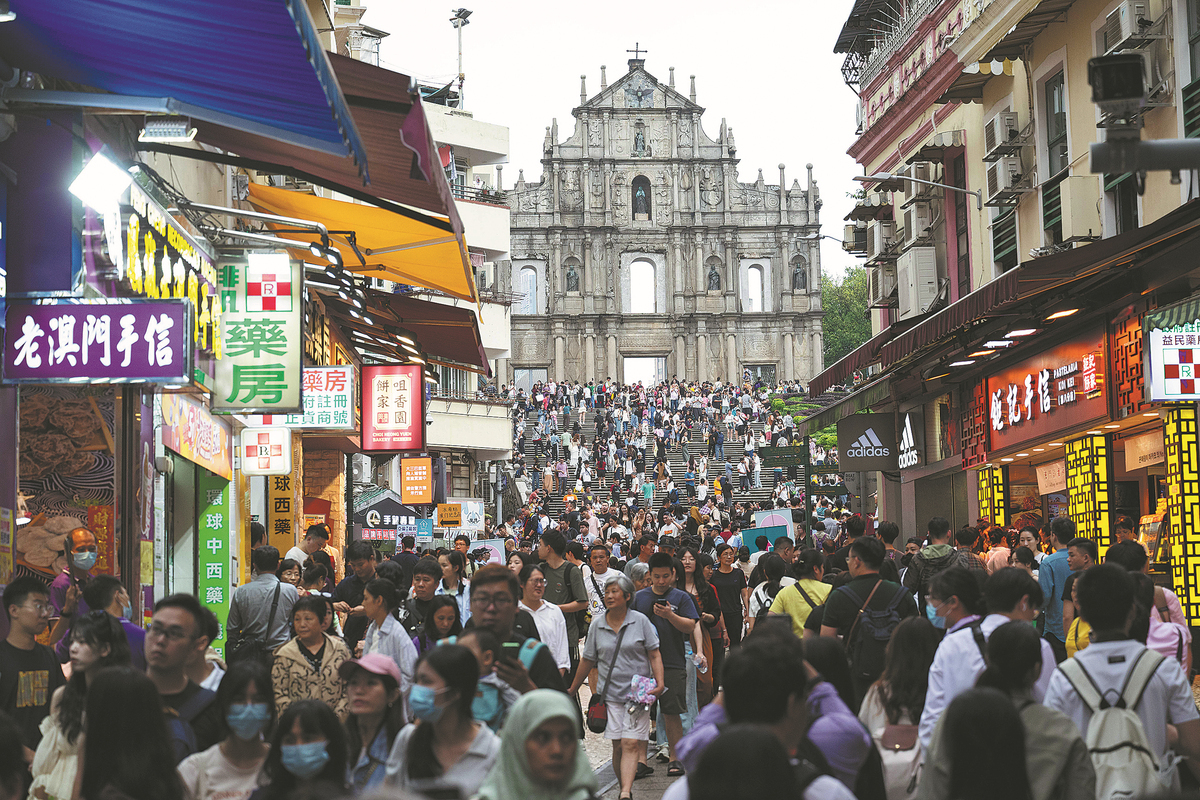Travel
HK, Macao hail new travel policy for expats

Tourists check out the Macao Special Administrative Region’s famous tourist spot, the Ruins of Saint Paul’s, in May. (ZHANG JINJIA/XINHUA)
The Hong Kong and Macao special administrative regions welcomed the nation’s decision to allow non-Chinese permanent residents in the two cities to enter the Chinese mainland with a card-type document starting on July 10.
The policy was announced by the nation’s Exit and Entry Administration on Monday, which marked the 27th anniversary of the Hong Kong Special Administrative Region’s establishment.
The document will enable non-Chinese permanent residents in Hong Kong and Macao to make multiple trips to and from the mainland during its five-year validity period, with each stay not exceeding 90 days. It will save them the need to apply for travel endorsements during the period.
In addition, cardholders can also enjoy self-service clearance, significantly enhancing efficiency.
However, if non-Chinese holders intend to work, study, or engage in news reporting activities on the mainland, they need to apply for visas or residence permits in accordance with the law.
Expressing his appreciation for the central government’s support, Hong Kong Chief Executive John Lee Ka-chiu noted that many non-Chinese Hong Kong permanent residents have deep family roots in the SAR and have been working hard, making notable contributions to the city’s development.
Foreign professionals working in Hong Kong are also eager to seize the historic opportunities arising from the nation’s rapid economic development and get more involved in making the Guangdong-Hong Kong-Macao Greater Bay Area a world-class region, he said.
The measure is not limited to any nationality or industry, fully reflecting Hong Kong’s unique status under “one country, two systems”, Lee said. It will greatly help the city maintain its international character and diversity, providing a significant incentive for companies and professionals from around the world to settle in Hong Kong, he added.
Hong Kong lawmaker Holden Chow Ho-ding hailed the travel policy as a great gift for the HKSAR to better connect with the world.
According to Chow, this arrangement allows expatriates in Hong Kong to benefit from the city’s international environment and enjoy the convenience of traveling to the mainland. This is expected to enhance the attractiveness of Hong Kong as a long-term settlement option for non-Chinese individuals.
Macao’s Chief Executive Ho Iat-seng described the central government’s move as an important manifestation of the nation’s expanding openness.
Ho said he believes that the new measure is conducive to supporting the Macao SAR in attracting overseas talent and consolidating its position as a world center of tourism and leisure, adding that it will also create more favorable conditions for Macao’s economic development.
Meanwhile, the central government has introduced a series of measures since early last year to promote exchange of talent between Hong Kong and the mainland.
Since May 6, mainland residents who travel to Hong Kong with an exit endorsement for a business visit have been able to stay for up to 14 days.
Since February 2023, the central government has piloted a new kind of travel endorsement for six types of mainland talent in nine mainland cities of the Greater Bay Area, which allows them to make multiple trips to Hong Kong and Macao.
In addition to the nine Greater Bay Area cities, the program has also included eligible talent from Beijing and Shanghai since May 6.
(Web editor: Tian Yi, Liang Jun)










